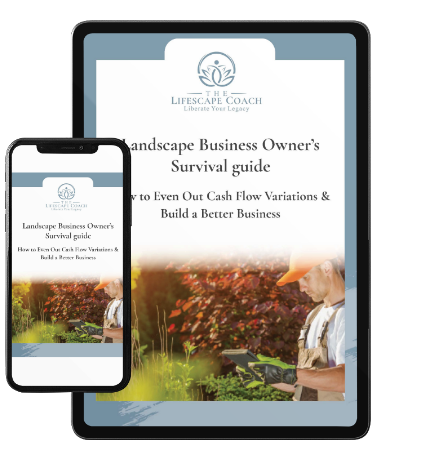How the 2019 Landscape Season Taught Me to Be a Better Boss
There is an interesting organizational dynamic that most companies, including landscaping businesses, experience: leadership perception. There is often a fundamental disconnect between how we, as bosses, think we lead and how our employees think we lead. Regardless of who thinks what, the only way we can truly know if we are leading and managing well is by the results we get from our employees.
One of the major factors contributing to this interesting leadership dynamic is an underlying misunderstanding of the origins of “bad behavior.” In many cases, bosses interpret bad behavior in employees as the byproduct of a bad employee. What they fail to understand is their possible role in creating that bad behavior. They don’t realize that they can be culpable as well through their influence on that employee and his or her behavior.
A major part of the problem is a lack of team-wide evolution. As owners, we’re heavily invested in the success of our businesses. We want to learn and grow and evolve as businesspeople. The problem is, sometimes we end up evolving away from our teams. As we learn and expand our expertise, what becomes clear to us ends up lost on our employees. As a result, we become frustrated by their lack of understanding and "progress," and they, too, become frustrated with us.

The Hula Hoop Challenge - a way to construct benign conflict within a group so they can work together to learn how to resolve it as a team.
It’s important to remember that we’re not the only bosses. The managers below us are also bosses, as are the crew leaders below them. It’s crucial to get all those bosses to evolve and grow along with you, so everyone is managing better, making better decisions, and becoming better leaders.
Of course, the key element here is people. Finding the right people can be a huge challenge because there simply aren't enough truly great employees to go around in this industry. But you know what? That's okay. It's merely a matter of getting past the desire to find the absolutely perfect employee through recruiting. Instead, you’re going to have to create them. That means finding the right people with the right attitude and interests that align with you, your values, and your business, then empowering those people to help them grow and succeed along with you.
It starts with proper onboarding and training. As an owner, you need to have an unwavering commitment to these two tasks and be aware that they are not the same thing. Onboarding is all about creating comfort, ease, and flow for new employees so they can assimilate into your culture. That does not happen in one onboarding meeting. It happens incrementally over time -- as much as a full year. Training has to occur at multiple levels:
- full company level, for things such as safety and policy
- manager level, to prepare internal managers to be better bosses
- personal skill level, based on position or division of the company -- no cookie-cutter, generic training for everyone
With the right people in place and everyone on the same page regarding company values and goals, it’s important to ensure that adequate communication happens on a regular basis. Here are three tips to help you do that:
Check-in and actively listen: This is more than passively listening to employees in between activities you consider more important. Regular check-ins to see how things are going can typically be rushed, last only five or so minutes, and be just once a week, or they’re monthly staff-wide meetings with your agenda driving the discussion. I’m talking more about truly listening to what your staff has to say. That means when you get that precious five minutes with an employee, try focusing on them and using all of your active listening skills such as making eye contact and leaning in to pay attention to what they are saying so that you’re truly present and actively engaging with their input. If they don’t come to you, you go to them. Make this kind of check-in a regular work-week habit for you and all bosses.
Follow up and follow through: When there is an issue or a problem, you need to not only provide a solution, you need to follow up to see if that solution worked and was what your team needed. And if you tell someone you’re going to do something or simply get back to them, you need to do it. Your credibility and reputation and their respect for you are at stake. Don’t let things linger – or worse, fester. That’s a bad-boss move (and so common it’s scary). Follow through, especially if it's a big issue you can't address immediately. Do what you can at the moment and then follow through as soon as possible with a more comprehensive fix. Your staff needs to know you have their collective back and that you'll stay with whatever the issue is until it's completely addressed. Following up and following through are two essential components to becoming a better boss.
Include your people: Diversity, equity, and inclusion are the cornerstones of a general business movement to improve the workplace. Inclusion – being included and valued as a member of a company, team, and crew -- goes a long way toward improving employee morale and achieving positive outcomes. So include employees in morning huddles, site walks, and cross-training. They need to know their ideas are welcomed and considered. As a boss, it's essential to make time and room to include staff in activities and appropriate decision-making. To create a safe place where they feel comfortable and can be heard as a group is a great-boss move. To help them feel included in discussions and share ideas about what is not working and how to fix it helps bring people together and forge a trust-bond. When you reinforce follow up and follow through with inclusion, the positive results can be huge. This level of leadership feeds a positive culture.
Becoming a better boss
All of what I just discussed here resulted from my decision to step in and work shoulder-to-shoulder with my staff. We hired six new people into our production workforce, and I thought it was simply a better way to teach them how to garden the TGC Way, but what I learned was eye-opening. People need regular attention, consideration, and inclusion to thrive. In the absence of it, even the best teams can start to erode.
My a-ha moment came one day while I was standing in my shop yard after a particularly busy morning. All the trucks had rolled out by 7 AM sharp, and I was left alone, empty coffee cup in hand feeling a little exhausted after thirty minutes of intense "air-traffic-control" and proud of the hustle exhibited by my staff.

Tough Conversations - a roleplaying exercise to help individuals learn how to lean into necessary conversations that will help them to resolve issues between them in a constructive one on one dialogue.
I had been helping with the mobilization efforts and watching the managers and the crew leaders closely to see how they were interacting with the production crews. I noticed subtle moments of disconnection, discomfort, and feelings of being lost in the hustle. Mind you, it was all subtle. To the outside eye, all would have looked "normal" and "fine."
Because I was there, in the mix, I was able to lean in an address everything I saw as I saw it or shortly after. I was tending the embers of what could have broken out into a fire but never escalated. Instead, I was helping to build and solidify the underlying positivity in our culture through honest feedback and incremental guidance. Ah, that's what it means to be a boss, I thought.
As I stood there in the silence that morning, I realized that you could be the most skilled person on the team, a total ace with amazing talents and gifts, and yet really struggle with the people interactions. Being good at what we do - landscape production and maintenance - does not mean being a good boss. As a matter of fact, it could be a deterrent to it. Often, these are the same people that prefer plants and stone and anything task related to the "people stuff."
By observing your teams and how they interact, you will notice how what people say and the words they use matters - a lot! Facial expressions and body language matter too because they tell so much about how a person is feeling and reacting to a situation. A boss needs to be mindful of their words and pay attention to all of the cues around them. Then, they need to take the time to guide their teams to start doing this too. Culture is about the collective energy in the room, but remember it’s made up of individuals - each with strengths and weaknesses and their own personal stories and preferences.
As the owner, manager, or crew leader within a company, I implore you to think hard about everything discussed here. Look at the people you work with and ask if you could make an effort to see and hear them more clearly. The best way to develop kick-ass crews is to invest your time and attention in them.

You know your team is feeling safe and supported when they can bring plastic vampire teeth in and get all monstered out for a group photo!
If you think this information is too touchy/feely, let me make one last pitch. The world of work - even in the trades - is changing. With low unemployment, we as tradespeople need to step up our game and to focus on more than just growing production operations and using our people as a means to that end. This behavior will perpetuate the problems we feel in the form of labor shortages, and feeling like our companies are nothing more than revolving door operations, spitting out employees on a regular basis.
The time and energy you, as the company owner, invest in being a better boss and then invest in developing better bosses within the ranks of account managers and crew leaders will forever change your work experience for the better. I know this from experience. I'm not saying it's easy, fast, or cheap. I'm saying it's worthwhile, valuable, and has the power to make a lasting positive change in your company, and that drives production growth.
Landscape Business Owners Survival Guide



